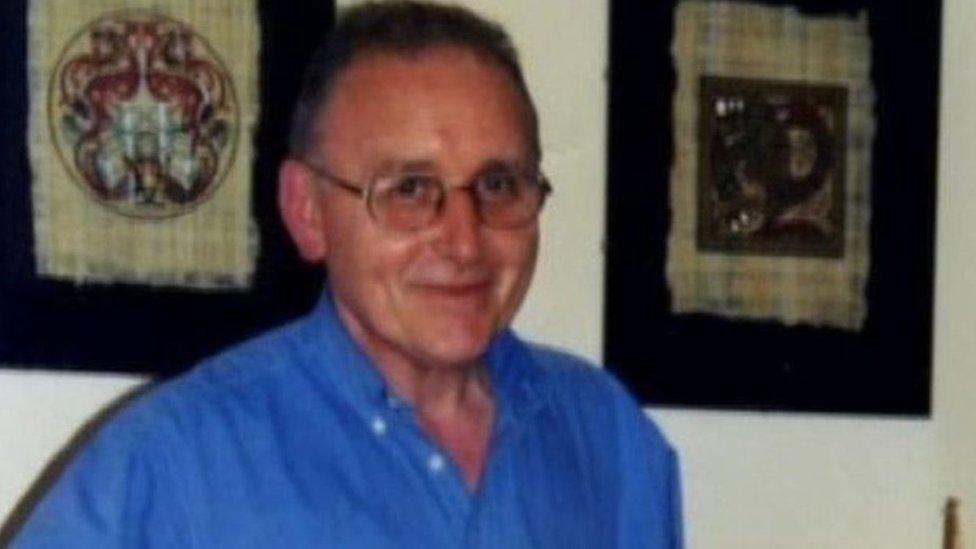Denis Donaldson: PSNI 'failed to properly evaluate' threat
- Published
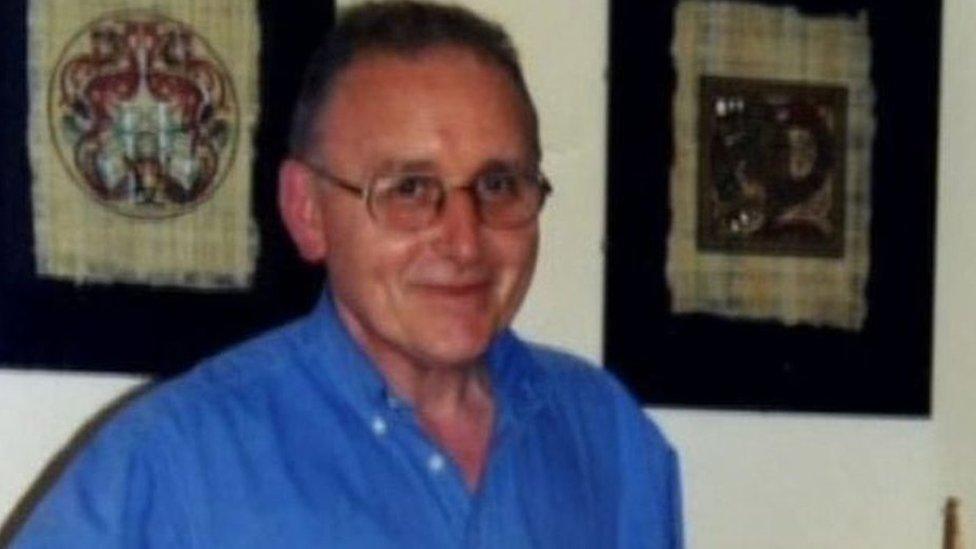
Denis Donaldson was shot dead in April 2006 months after he was exposed as a Security Service spy
Police failed to properly evaluate the threat informer Denis Donaldson was under before he was shot dead in County Donegal, a report has found.
However, Police Ombudsman Marie Anderson said she could not conclude the former Sinn Féin official's murder in 2006 could have been prevented.
His family said the police had been negligent in a duty of care to him "for reasons that remain unexplained".
Mr Donaldson's murder was claimed by the dissident republican Real IRA.
The 55 year old, who once held a key administrative role for Sinn Féin at Stormont, admitted in December 2005 that he had been working for MI5 and the police for 20 years.
He then moved to a family cottage in Glenties, where he was murdered in April 2006.
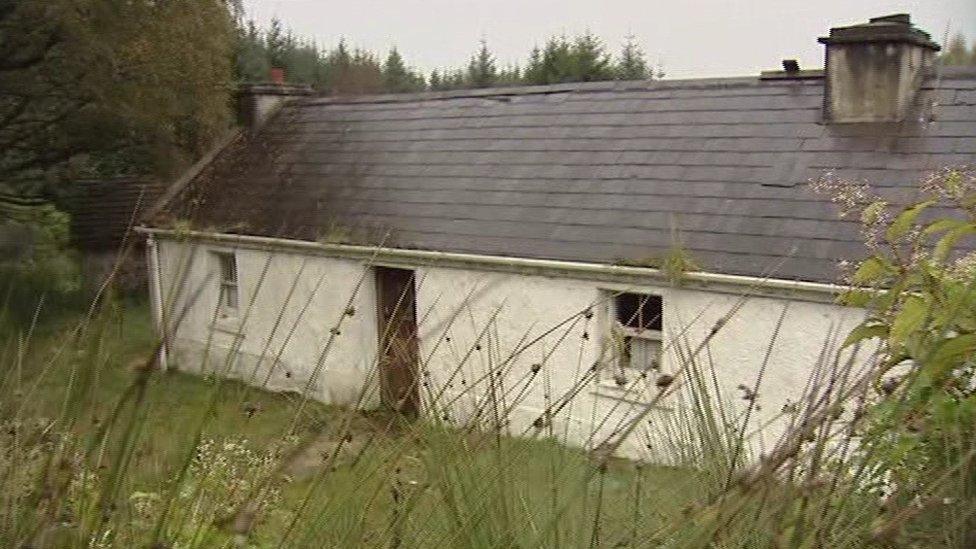
Mr Donaldson was shot dead at a cottage in Glenties, County Donegal
Two weeks before his killing, the Sunday World newspaper published a story on him that included a photograph of him standing outside the property.
The Police Ombudsman found no evidence police had leaked information on his whereabouts.
Shortly after the story appeared, the PSNI received information indicating Mr Donaldson's life "may be at increased risk".
This information was shared with An Garda Síochána (Irish police).
But Mrs Anderson found no evidence of a PSNI risk assessment having been carried out following the Sunday World article.
"It is likely that this important measure to assess the threat to Mr Donaldson's life was not undertaken," her report stated.
"I am of the view the family's concerns about the steps taken by PSNI in management of this threat are legitimate and justified."
In a BBC News NI interview, Ms Anderson added: "I believe it was a corporate failing, but I cannot say if they carried out the risk assessment Denis's murder would have been preventable.
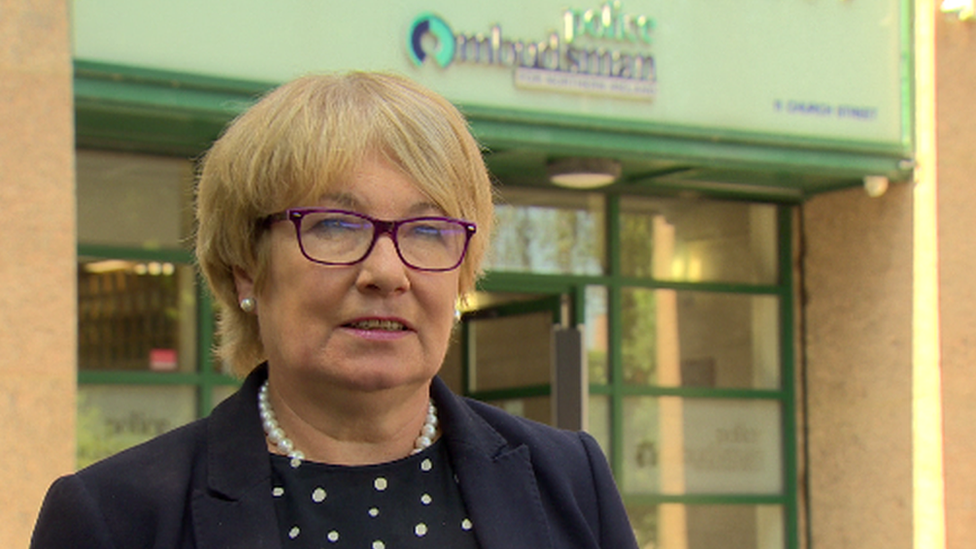
Ombudsman Marie Anderson said Donaldson family concerns over the PSNI's management of the threat were "legitimate and justified"
"There is certainly an indication others in County Donegal knew of his whereabouts."
Mr Donaldson's family issued a statement through their lawyers.
It read: "For reasons that remain unexplained and unaccounted for, the PSNI abandoned its routine practice of risk assessments.
"This course of action was taken at precisely the moment when the risk to Denis's life was at its greatest.
"The key question has always been: 'Did the PSNI do enough to protect Denis's life?' The ombudsman's answer today was no, they did not."
The PSNI said it recognised "the pain and suffering" of the Donaldson family.
Ass Ch Con Mark McEwan added: "We note the findings of the investigation and will now take some time to review her comprehensive report.
"We have reviewed our operational policies and service procedure regarding the management of threats to life and will continue to do so on a regular basis."
The ombudsman's report also found that the PSNI had provided "a high-level of co-operation and assistance" to the the Garda's murder inquiry.
During the course of its investigation, the ombudsman's office questioned one officer under caution and he denied sharing information about Mr Donaldson's whereabouts.
As he has subsequently retired, the issue of disciplinary proceedings could not be considered by the ombudsman.
A DUP assembly member who sits on the Policing Board, Trevor Clarke, said: "The ombudsman has been oddly critical of the PSNI for not carrying out a full risk assessment after the Sunday World had identified where Mr Donaldson was living.
"This is despite the PSNI advising the Garda of the potential increased risk and the victim living outside of their jurisdiction.
"Now that this investigation is complete, our sights must be firmly fixed on identifying those responsible for this brutal murder as well as those in the republican movement who have something to hide.''

Who was Denis Donaldson?
By the time the Troubles erupted in 1969, Denis Donaldson was in the IRA.
In the 1970s he was jailed for explosives offences and during his time in the Maze prison became close friends with Bobby Sands.
His double-life began in the next decade.
He was recruited as an agent in the 1980s, at a time when he was becoming more prominent in Sinn Féin.
He was its candidate in the 1983 Westminster election in his native east Belfast.
Later, he travelled widely as a representative of Sinn Féin to the likes of the Middle East and United States.
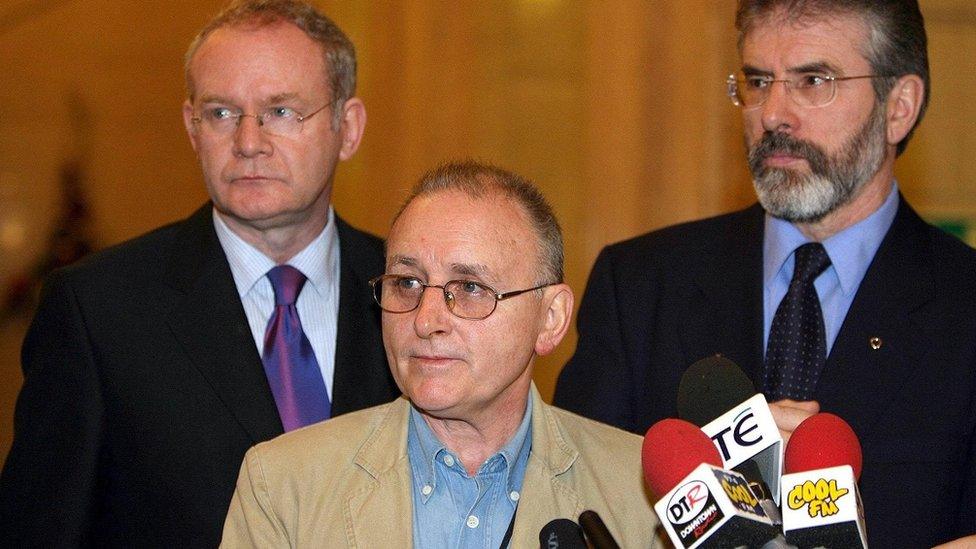
Denis Donaldson pictured with Sinn Féin's Martin McGuinness (left) and Gerry Adams
After the Good Friday Agreement in 1998, he assumed a key backroom role for the party based at Parliament Buildings in Stormont.
In what was dubbed Stormont-gate, Mr Donaldson was one of three men arrested in 2002 over an alleged IRA intelligence gathering operation.
Three years later, charges were dropped on the grounds that prosecutions were not in the public interest.
Within a matter of days, Mr Donaldson admitted having been an informer.
He said he had been paid to work for MI5 and the police "after compromising myself during a vulnerable time in my life".
Four months later, he was murdered in Donegal.
- Published30 January 2013
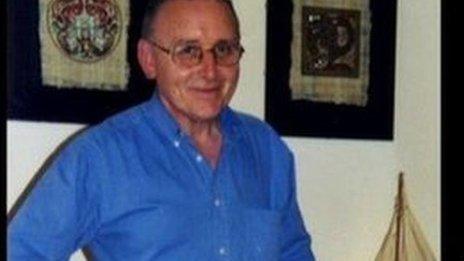
- Published28 September 2018

- Published27 September 2018
